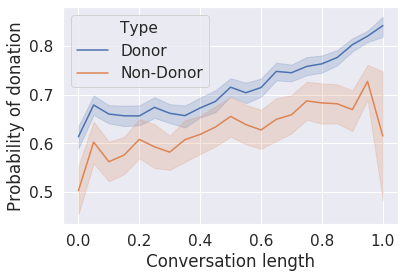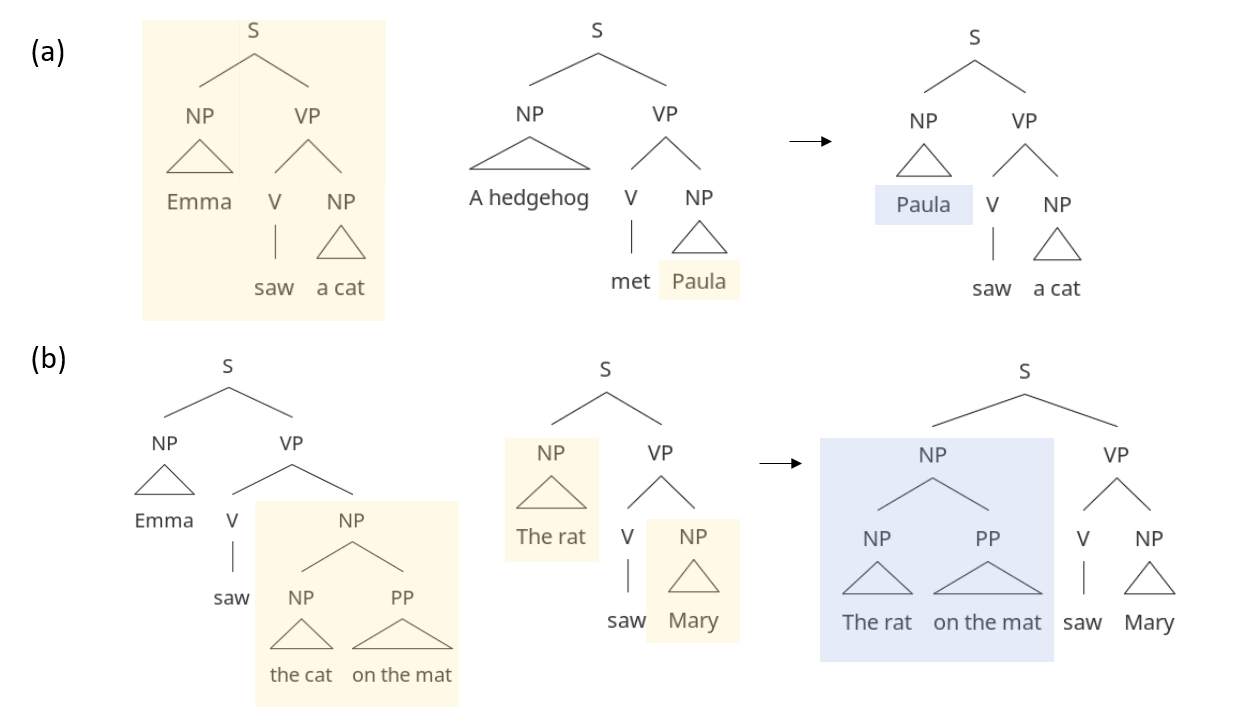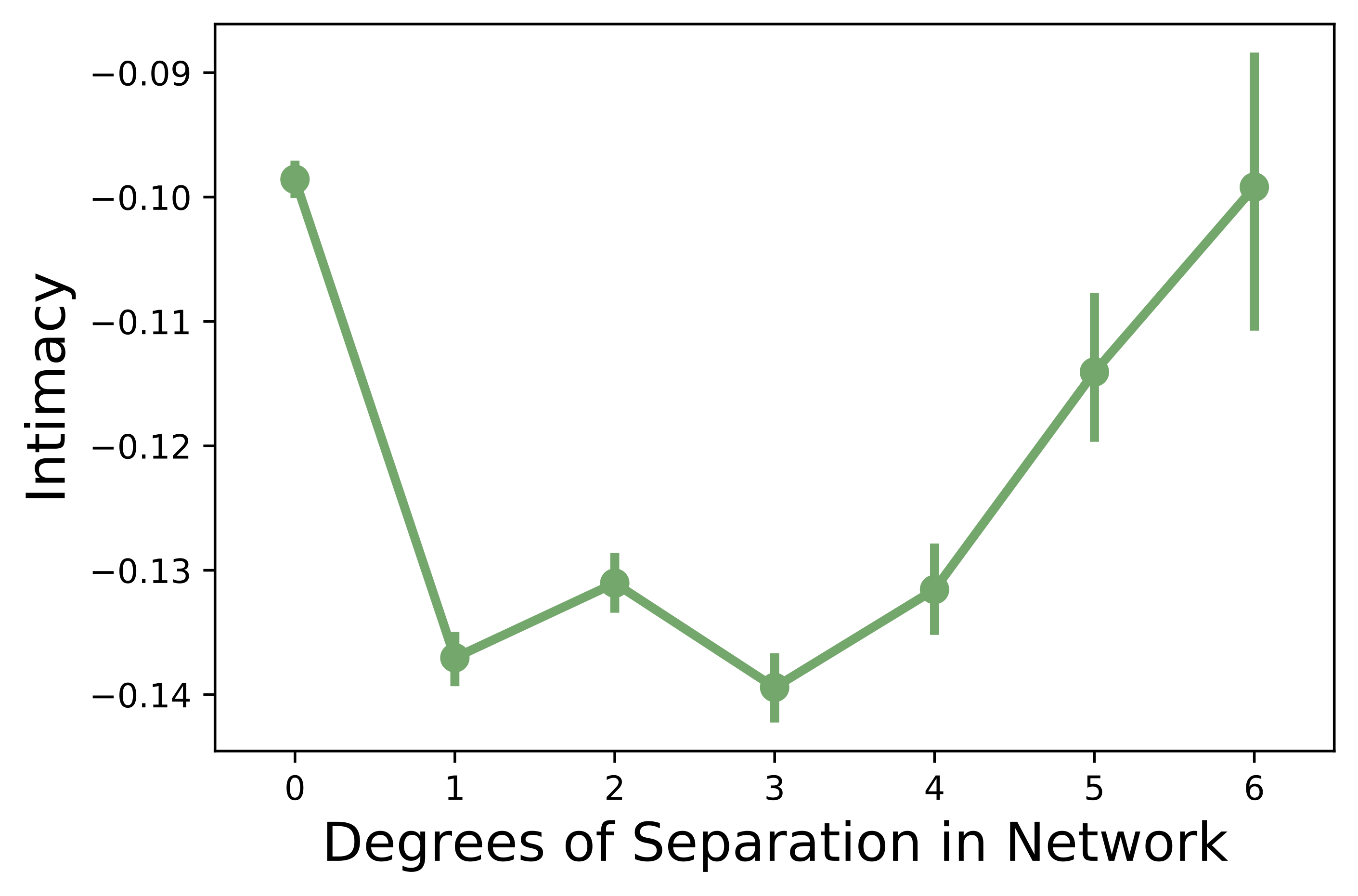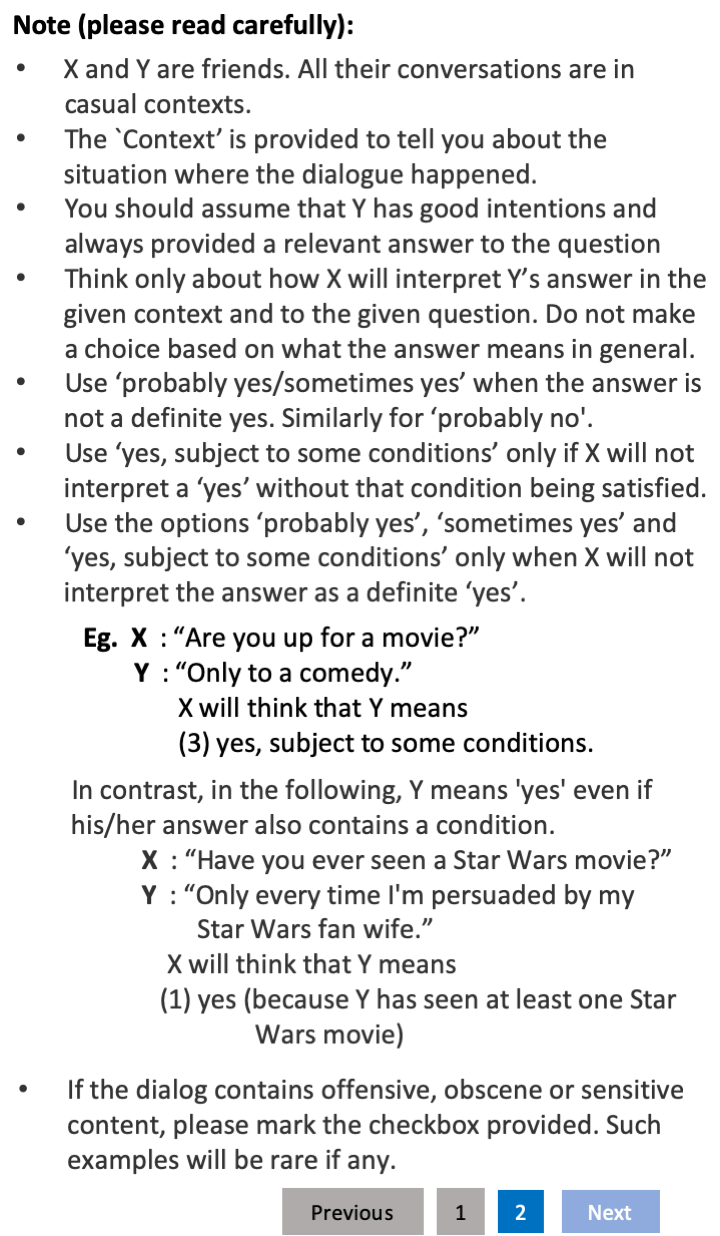Social Chemistry 101: Learning to Reason about Social and Moral Norms
Maxwell Forbes, Jena D. Hwang, Vered Shwartz, Maarten Sap, Yejin Choi
Computational Social Science and Social Media Long Paper

You can open the pre-recorded video in a separate window.
Abstract:
Social norms—the unspoken commonsense rules about acceptable social behavior—are crucial in understanding the underlying causes and intents of people’s actions in narratives. For example, underlying an action such as "wanting to call cops on my neighbor" are social norms that inform our conduct, such as "It is expected that you report crimes." We present SOCIAL CHEMISTRY, a new conceptual formalism to study people’s everyday social norms and moral judgments over a rich spectrum of real life situations described in natural language. We introduce SOCIAL-CHEM-101, a large-scale corpus that catalogs 292k rules-of-thumb such as “It is rude to run a blender at 5am” as the basic conceptual units. Each rule-of-thumb is further broken down with 12 different dimensions of people’s judgments, including social judgments of good and bad, moral foundations, expected cultural pressure, and assumed legality, which together amount to over 4.5 million annotations of categorical labels and free-text descriptions. Comprehensive empirical results based on state-of-the-art neural models demonstrate that computational modeling of social norms is a promising research direction. Our model framework, Neural Norm Transformer, learns and generalizes SOCIAL-CHEM-101 to successfully reason about previously unseen situations, generating relevant (and potentially novel) attribute-aware social rules-of-thumb.
NOTE: Video may display a random order of authors.
Correct author list is at the top of this page.
Connected Papers in EMNLP2020
Similar Papers
Keeping Up Appearances: Computational Modeling of Face Acts in Persuasion Oriented Discussions
Ritam Dutt, Rishabh Joshi, Carolyn Rose,

COGS: A Compositional Generalization Challenge Based on Semantic Interpretation
Najoung Kim, Tal Linzen,


